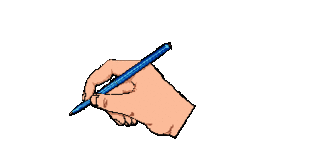The Big Picture
--Ellen Wheeler Wilcox
The moral problem. More than half of the nation's wealth concentrated in the hands of a few, never circulated to generate productive commercial activites but instead used to finance vice, criminal activities and political instability, all with the ultimate aim of preserving the elite in power. The result? Widespread unemployment and poverty all around. Many are migrating abroad to escape, find work, and to feed their families left behind. How does one react to this crisis?
Specifically, how do the comics in the local market address, much less react, to such an abnormal situation? With the exception of a few local newspaper comic strips, the short answer is "no reaction". Being creatures of entertainment and marketed particularly to the rich elite in our deeply divided society, most of these titles do not even reflect nor address, even by allegory, the very real prevalence of evil against the diminishing good in this country.
Just what kinds of comics are being sold in the market today? The first kind, and certainly the most prevalent and influential, are the expensive foreign comics from America and Japan. The second kind are licensed comics properties, reprints actually of foreign comics published by local publishers. The third and last kind are original Filipino Komiks publications by local publishers that generally ape and/or emulate the look, style, approach, (and sometimes even language) of the expensive more commercially viable foreign comics publications.
Surveying these titles, most if not all of them contain wholly entertainment content limited usually to the fantasy, kiddie action, horror, adventure, superhero and cartoon humor variety. The other common denominator is that they all reflect the peculiar cultural approach to comics by foreign countries.
America and Japan are rich, developed countries. These countries are not experiencing the kind of moral crisis faced by our society. Most of their citizens are so economically well-off that they could afford to engage in various pleasure-seeking and "entertaining" activities such as reading comicbooks. Its an extension of their leisure activity, the benefit of an economically and politically strong nation. Based on their particular cultural experiences they consequently weave their own distinct tales, invent their own modern mythical heroes and characters, and basically improve on this creative exercise over time. They do not, by any stretch of the imagination, specifically address our country's social and cultural plight.
Because the efforts of these foreign comics creators have been so successful and their influence far-reaching, our handful of local comics publishers have been overwhelmed and persuaded as well by commercial considerations, to ape and emulate these foreign comics when making their own versions of modern Filipino Komiks. Looking at their glossy, cosmetically enhanced accomplishments, one could indeed say that these new Filipino Komiks are truly at par with the kind of comics entertainment espoused by the rich, developed, pleasure-seeking nations. Indeed, this is the era of the "globalized" Filipino Komik.
This is why the few Filipino Komiks titles being sold today do not really reflect or acknowledge the peculiar social and cultural experiences of our people. Their entertainment is alien and their attempted allegories to prevailing current events, disappointingly wanting to a great many of our countrymen. Verily, these new Filipino Komiks are tailor-made for an elite "globalized" audience. The same rich target market elite who can afford and ardently patronize the expensive and imported comicbooks of America and Japan sold in our country.
Aren't there any other Filipino Komix out in the market besides these globalized Filipino Komiks? Again, the short answer is there is none worth mentioning. As previously stated, most of the nation's wealth and money is concentrated in the elite. The money is not as widely and democratically dispersed by a liberalized financial system so as to enable a variety of independent FIlipino comics publishers to provide an alternative product. The solution obviously is to wrest control of the money away from the elite; expose their rackets through new, creative means where probably the visual narrative of comics could help contribute.

0 Comments:
Post a Comment
<< Home